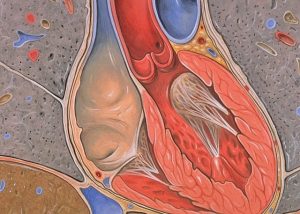Have you ever noticed that two people can go through the self-same experience and one come out a “winner” and the other a “victim?”
Do you ever wonder why it is that two people can hold the same position in a company and one excel while the other dread every day they have to go to work?
Did you ever pass up “a dead-end” offer only to see someone else take it and turn it into “the opportunity of a lifetime”?
I have counseled many who have.
Why are some people winners and others victims? Why do some excel and others fail? While there may be many reasons to explain the differences, I believe the most likely answer is that people are motivated differently.
Motivation is simply why a person does what they do. It is the process that initiates, guides, and maintains goal-oriented behaviors. Motivation is what causes us to act, whether it is a baby crying to get a bottle of milk, a college student studying to pass an exam, or an individual going to work to get a paycheck.
Sources of motivation
According to Maslow (1943) we have a set of needs that motivate us to do what we do. These needs are hierarchical; that is, after we’ve satisfied a lower need, we instinctively work to fulfill the next one. The first and basic needs are our physiological needs—food, water, and oxygen. The second stage of need is to feel safe and secure. The third need is the desire to feel loved and to belong. The fourth need that motivates us is self-esteem. The final and highest level of need we pursue is self-actualization. Self-actualization is believing we are doing what we were designed to do; it is the point at which our potential and purpose intersect.
Maslow’s hierarchy of needs helps us to understand what drives some people and not others. But it doesn’t quite explain why, despite our need to pay the rent, for example, we won’t show up on time for work; why, despite our need to feel loved and to belong, we keep putting off seeing a marriage counselor; or why, despite knowing that being overweight contributes to our low self-esteem, we’re not motivated to change our diet and exercise regularly. What can explain such behavior? I say lack of vision.
Vision gives direction to our motivation. Vision focuses, strengthens, and stabilizes our motivation so that we can grow and change and achieve no matter what is happening around us or to us.
Do you have a vision for your life?
If one of the reasons you are unhappy with your life is that you have no or little motivation to bring about the changes in your life that you want to see, then it’s not motivation you lack; it’s vision. Do you have a vision for your life? Do you have a mental picture today of where you want to be tomorrow? Here’s how you can begin to shape a vision for your life.
- Imagine being the best you could ever be.
- Imagine living a life without the fear of failure.
- Imagine being successful and fulfilling your dreams.
- Imagine loving people without limits, without any concern to their faults.
- Imagine being courageous in suffering, being able to accept responsibility without hating yourself
- Imagine forgiving everyone who has or ever will hurt you; and stop being defensive.
- Imagine being committed to discipline to cope with destructive actions so that you can become your “authentic self.”
Becoming your authentic self
I believe that if you want to become your authentic self, you must grow into an intimate relationship with Jesus Christ. Imagine a very intimate relationship with the only God, who created you and loves you. Such a relationship and a Savior will enable you to imagine living a life where your value is not defined by what you do for a living or by what other people think of you; but a life where you are free to think, feel, and act as the Lord directs you.
Each of us has an internal need to grow into our authentic self. In order to do so, first imagine it being possible because authentic people always start as shame-false-self individuals who imagined, desired, and were motivated to become their authentic selves.
Next, surrender your life to Christ. Psalm 23:3 says, “He (The Lord) restores my soul; He leads me in the paths of righteousness for His name’s sake” (NKJV). This path usually has common steps but there are steps that will pertain only to the individual the Lord is restoring.
After developing the awareness that you can actually shift and grow into your authentic self, begin to take timeouts. Shame, fear, and anger speed us up by way of physiological arousal, resulting in emotional and physical fatigue. Alternatively, experiencing love slows you down, resulting in emotional and physical recovery. Hence, take time out for a break, even a brief one; and this can result in clearer judgment and decision-making and motivation.
Confronting shame directly
Confronting shame directly is a major step in becoming your authentic self. This step includes awareness; that is, re-experiencing the hurt experienced over time so that you can identify shame triggers. Working through these triggers can reduce their negative effects on you.
Here are some ways you can confront shame directly.
Write down the experiences and emotions associated with past shameful experiences. It may also be helpful to develop a timeline of shame (pinpointing ages and events to discuss in the therapeutic context).
Take time to be silent. Silence is something we must practice daily. Psalm 46:10 says, “Be still, and know that I am God . . .” Remaining silent for a few minutes will allow your own heart rate to settle and make you more aware of your deeper self. It is in these moments I have heard the Lord speak things to my heart that healed years of pain in instants.
Pray. With your mind relaxed, admit your problems and ask God to open your heart to love. Whereas human love is temporal and temperamental, eternal love is unchanging and unconditional. However, we frequently lose sight of eternal love and focus on seeking the love of those around us. A simple prayer or meditation can help you to focus on anchoring yourself in eternal love.
God, have mercy upon me and forgive my resistance to Your love.
I surrender my heart and shame to Your healing and unfailing love.
Practice gratitude. Recognize God’s love for you by giving thanks for His blessings in your life, even if they seem insignificant. Walking may seem insignificant unless you were born without legs.
Practice real love. Practice living according to what is described in 1 Corinthians 13:4-13. This is love that heals.
In short, you are motivated by something and have an inner drive to attain your five needs as described by Maslow. But you need to consciously decide the quality of life you want to experience while striving to attain those needs. The key to achieving your needs is to have a vision for your life, a vision in which you grow into your authentic self.
References
Allen, David. (1993). In Search of the Heart. Eleuthera Publications.









